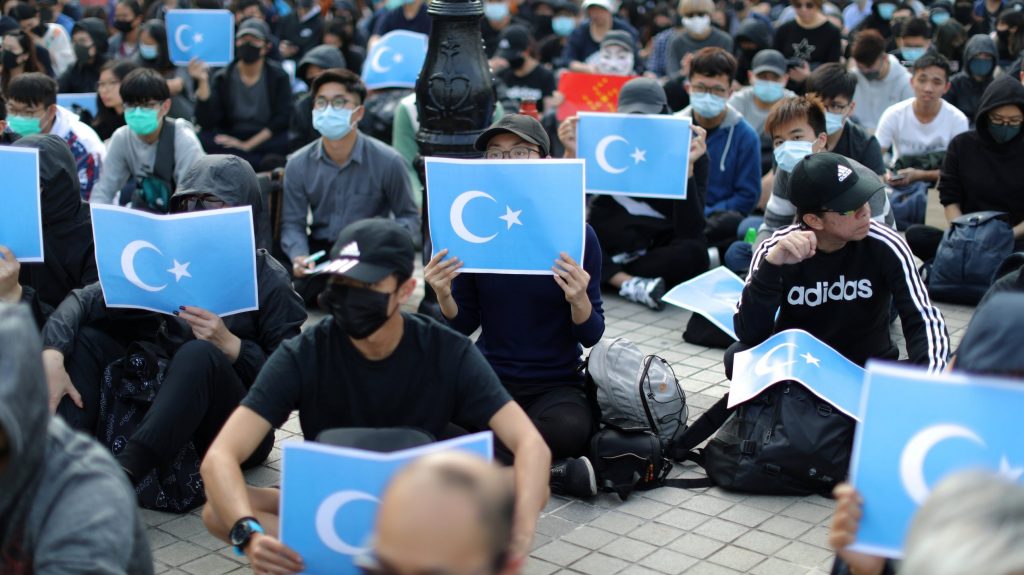Social hostilities against religious believers and churches dipped in 2019, according to a Pew Research Center report issued Sept. 30.
Government hostilities toward religion, though, remained at their highest level since Pew started conducting this research a dozen years ago.
In 2019, 43 countries had either "high" or "very high" levels of social hostilities, down from 53 countries in 2018, and down from a peak of 65 countries in 2012, the report said.
On the government side, 180 countries had at least one instance, at some level, of government harassment against religious groups, compared with 175 countries in 2018. But 75 countries had either high or very high levels of overall restrictions on religion in 2019, down from 80 in 2018.
"We do see more fluctuations over the years with ups and downs," said Samirah Majumdar, a Pew research associate and the primary researcher for the study. "Social hostilities are based more on incidents, while government hostilities are based on broad politics that don't tend to change as much over time."
Government interference in worship ranges from withholding permission for religious activities or prohibiting particular religious practices at any level of government, such as worship activities, wearing religious attire, adhering to grooming customs such as maintaining a beard, conscientious objection to military service, the use of certain substances in worship and following ritual burial practices.
One example cited in the report: "In Slovenia, where animal slaughter without prior stunning is prohibited, Muslims and Jews are not allowed to slaughter animals according to halal and kosher dietary guidelines."
In 2019, 49 countries experienced at least some form of religion-related terrorism, "a record low for the study," Pew said. That compares to 64 countries in 2018, and a record high of 82 in 2014, when the Islamic State was wreaking havoc in the Middle East and Boko Haram was plaguing Nigeria and neighboring nations.
Pew, for the first time, started tracking the use of technology to harass religious practices, "as well as the governmental use of new or advanced technologies such as surveillance cameras, facial recognition technology or biometric data to restrict or surveil religious groups," it said.
In China, Pew said, "the state installed surveillance equipment in churches, mosques, a synagogue and other houses of worship; the government also used facial recognition technology to monitor and collect biometric data on Uighur Muslims and other groups deemed to be potential threats. Authorities in Xinjiang also required Uighurs to install software on their phones to monitor their calls and messages."
Majumdar said the 2022 report would include more detail on online harassment, as it will be able to compare 2020's figures -- the focus of next year's study -- with those of 2019.
Pew looks at 196 countries, and does not exclude the United States, using U.S. hate crime statistics and Justice Department publications on freedom of religion and belief cases, but also at internationally-based sources, Majumdar said.
Pew included one U.S. case of government restrictions on religion in the report.
"An Indigenous tribe called the Ramapough Mountain Indians had an ongoing lawsuit in 2019 against the township of Mahwah, New Jersey, after the township limited their religious gatherings and ordered them to remove several religious structures, including an altar and prayer circle."
The report noted the Justice Department later supported the tribe's lawsuit against the town, and the parties eventually settled in June 2019.
Christians faced harassment in 153 countries, with Muslims close behind at 147. Majumdar told CNS this is because Christians are the biggest and most widely dispersed faith group in the world. Jews suffered from harassment in 89 countries, even though they make up only 0.2% of the world's population.
The Pew report noted a pair of cases where Christians were targeted.
In Pakistan, the report said, "a Christian suspect in a theft case was tortured while in police custody and died a few hours after being released. The victim's brother reported that one of the police officers who arrested the man said, 'I know how to deal with these infidels.'"
In Cuba, it added, "there were multiple reports of state officials threatening Christian house church leaders for conducting religious activities."
Next year's report on 2020 will cover the first year of the coronavirus pandemic. Asked whether preliminary available data contained anything to suggest movement in either direction on harassment due to the pandemic, Majumdar replied, "It's something we are going to be looking out for."

